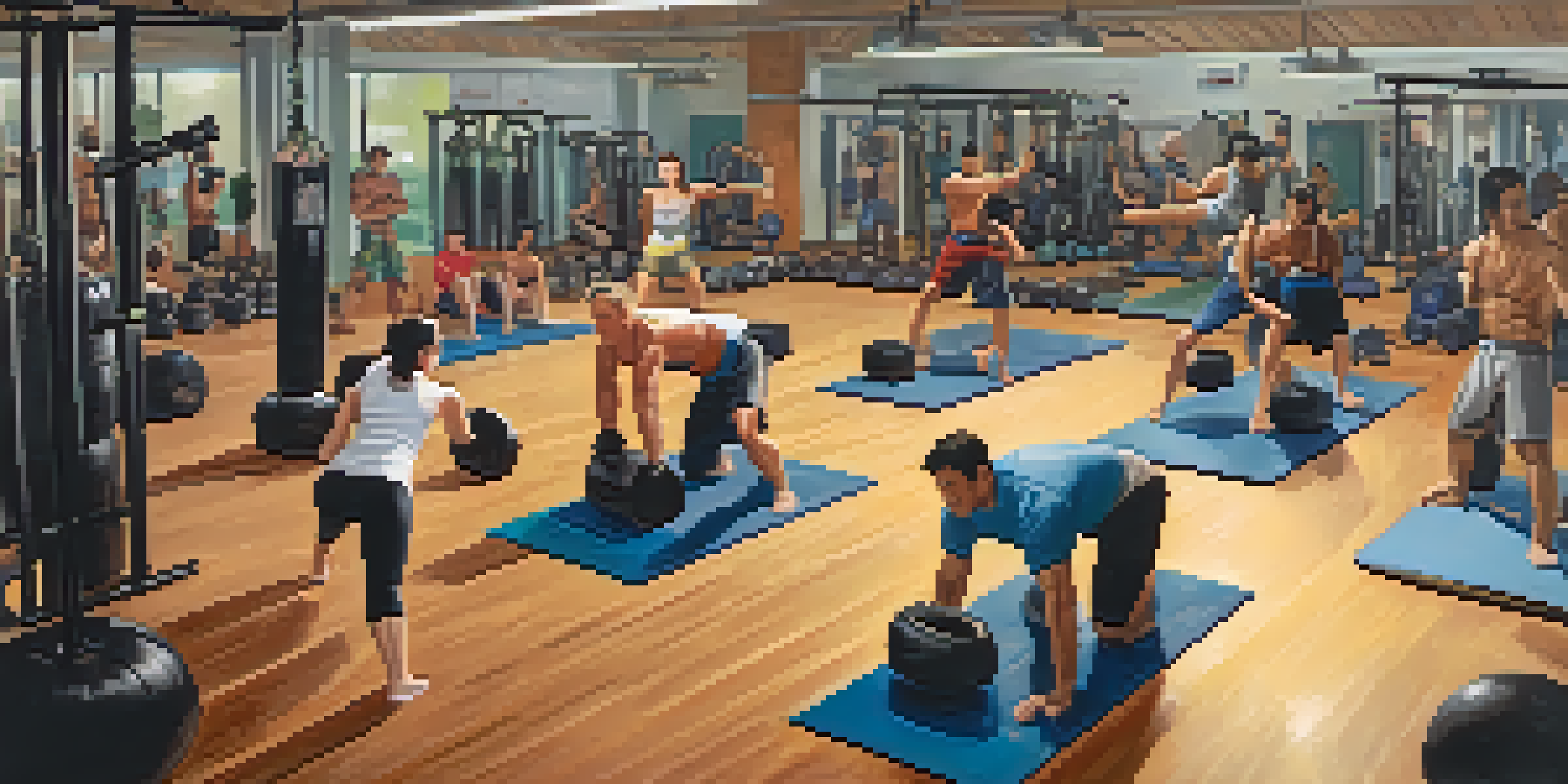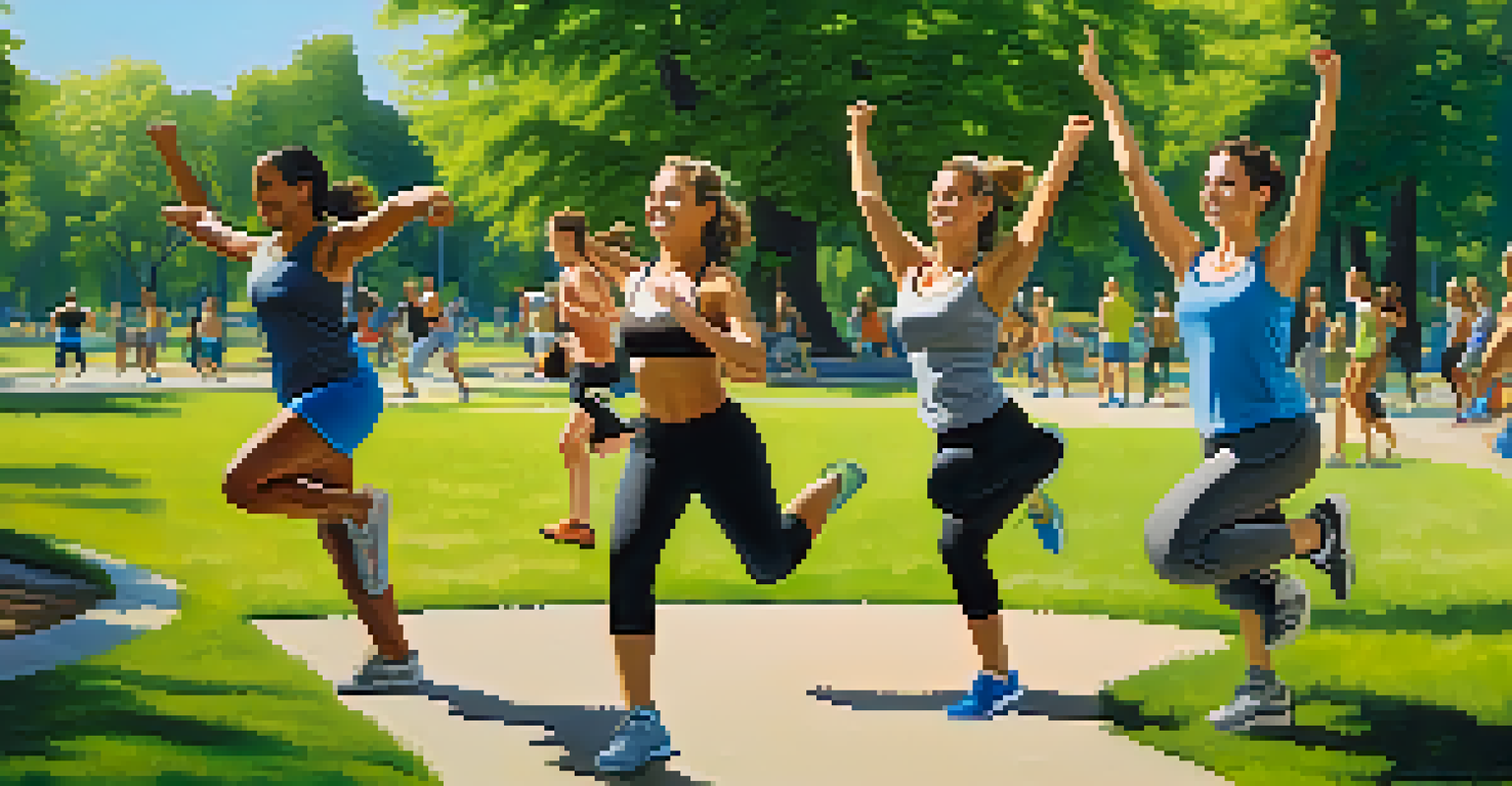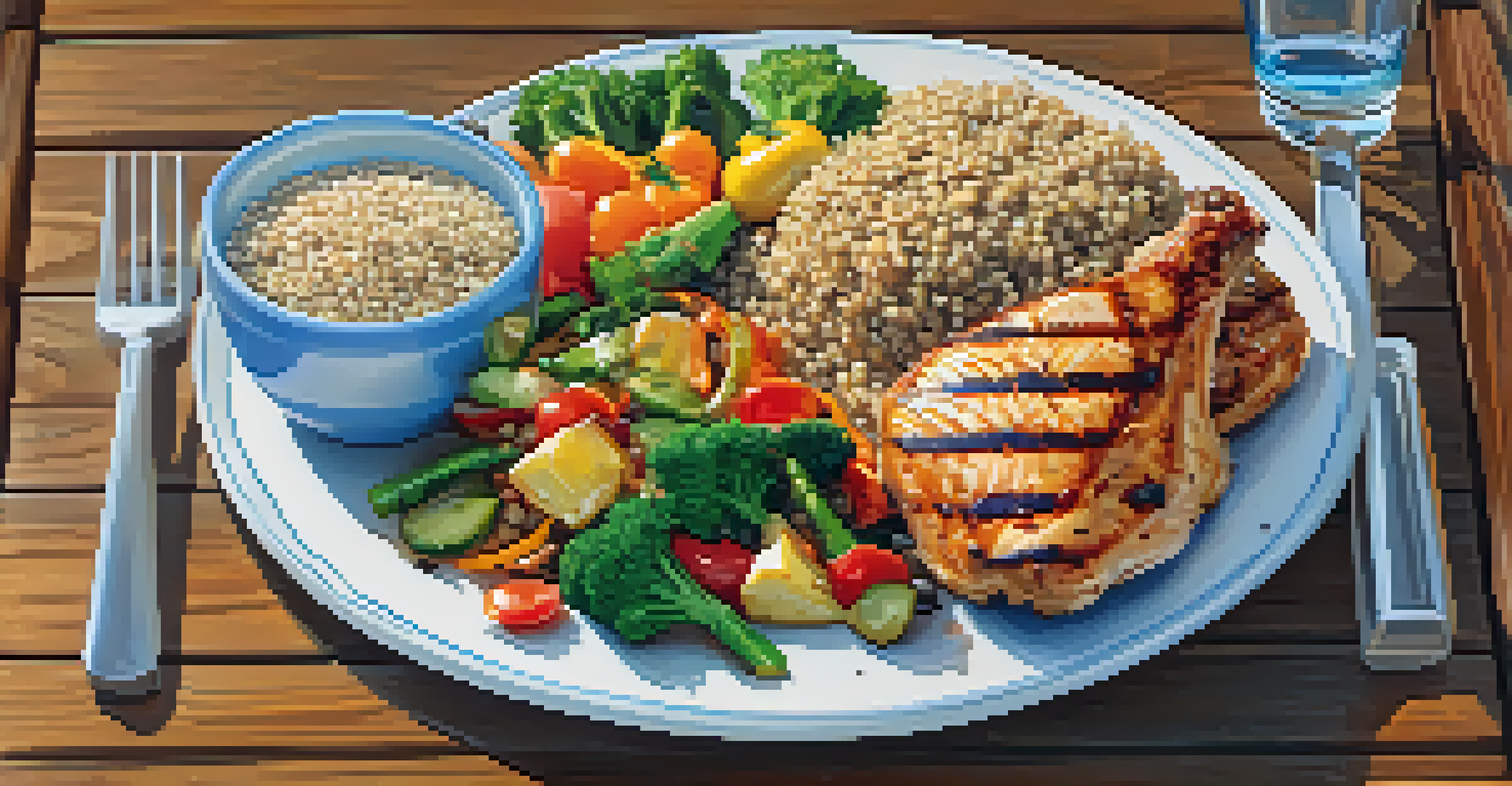How Physical Fitness Enhances Self Defense Skills Effectively

Understanding the Connection Between Fitness and Self Defense
Physical fitness and self-defense go hand in hand; one enhances the other. When you're fit, your body is more capable of executing defense techniques effectively. This synergy means that as your strength, endurance, and flexibility improve, so does your ability to react swiftly in a threatening situation.
The body achieves what the mind believes.
Imagine trying to run from an attacker without having built up your stamina. It’s like trying to sprint after a long day without any training; your body simply won’t cooperate. By prioritizing physical fitness, you're not just preparing your body, but also your mind, to respond quickly and efficiently when it matters most.
Ultimately, a well-rounded fitness routine not only boosts your self-defense skills but also builds confidence. Knowing you’re physically capable can make a world of difference in how you handle potentially dangerous situations.
Building Strength for Effective Defense Techniques
Strength is a critical component of any self-defense strategy. Techniques often require you to push, pull, or throw your opponent, which demands muscle power. Regular strength training can make a significant difference in how effectively you can execute these moves.

Consider the difference between trying to lift a heavy object with ease versus struggling with it. When you build strength through workouts, those self-defense moves that once felt daunting become manageable. Whether it’s doing push-ups, lifting weights, or practicing martial arts, strengthening your muscles is essential.
Fitness Boosts Self-Defense Skills
Improving physical fitness enhances your strength, endurance, and flexibility, which are crucial for effective self-defense.
Moreover, increased strength helps prevent injuries. If you’re physically strong, you’re less likely to get hurt during a confrontation, allowing you to focus on defending yourself instead of worrying about your body giving out.
Enhancing Endurance for Better Reaction Times
Endurance plays a pivotal role in self-defense, as it allows you to maintain your energy during a confrontation. When faced with a threat, having the stamina to react and escape is vital. Engaging in cardiovascular exercises like running, cycling, or swimming can vastly improve your endurance levels.
Physical fitness is not only one of the most important keys to a healthy body, it is the basis of dynamic and creative intellectual activity.
Think about how you feel after a long cardio session; your heart is pumping, and you feel invigorated. This kind of conditioning helps you stay alert and quick on your feet, which is crucial in self-defense situations. Plus, the more endurance you build, the longer you can sustain any necessary physical effort.
As an added bonus, improved endurance also enhances your mental fortitude. When you know you can keep going, it boosts your confidence and ability to think clearly, even under pressure.
Flexibility: A Secret Weapon in Self Defense
Flexibility is often overlooked, but it’s a key factor in self-defense. Being flexible allows you to maneuver your body effectively, making it easier to escape holds or deliver powerful strikes. Regular stretching and flexibility training can greatly enhance your range of motion.
Picture a rubber band; it stretches without breaking and can adapt to various shapes. In self-defense, being flexible means you can adapt to different situations, whether it’s slipping away from an attacker or executing a kick. This adaptability can be the difference between dodging an attack and being caught off guard.
Nutrition Fuels Performance
A balanced diet and proper hydration significantly support your physical fitness and recovery, thus improving your self-defense capabilities.
Moreover, flexibility training helps reduce the risk of injuries. When your muscles and joints are limber, you’re less likely to pull a muscle or strain something during a defensive maneuver.
Mental Fitness: The Psychological Edge in Defense
Physical fitness isn't just about the body; it also has a profound impact on your mental state. Exercise has been shown to reduce stress and anxiety, allowing you to stay calm under pressure. This mental clarity is crucial when learning self-defense techniques.
Imagine facing a confrontation while your heart races and your mind is foggy. It’s tough to think clearly, let alone react appropriately. By staying physically fit, you can maintain a level of mental sharpness that is invaluable in high-stress situations.
Furthermore, the discipline you develop through fitness can translate into your self-defense practice. The perseverance and focus required in physical training can help you stay dedicated to refining your defensive skills.
Finding the Right Fitness Routine for Self Defense
Choosing the right fitness routine can significantly impact your self-defense skills. Not all workouts are created equal, so it’s essential to incorporate elements that build strength, endurance, and flexibility. Activities like martial arts, kickboxing, or even yoga can enhance your self-defense capabilities.
Think of it this way: if you want to become a better swimmer, you wouldn’t just run on the treadmill. Similarly, if self-defense is your goal, engaging in fitness activities that mimic those movements is vital. Look for classes or programs that challenge you and keep you engaged.
Integrate Fitness into Daily Life
Making small, consistent changes to incorporate fitness and self-defense into your routine can lead to significant improvements over time.
Remember, consistency is key. The more regularly you participate in these activities, the more you’ll see improvements in both your fitness and self-defense skills.
The Role of Nutrition in Enhancing Physical Fitness
Nutrition plays a crucial role in your overall fitness and, consequently, your self-defense abilities. Eating a balanced diet rich in proteins, healthy fats, and carbohydrates fuels your body for both workouts and real-life situations. Proper nutrition supports muscle recovery and boosts your energy levels.
Imagine trying to run a car on empty; it simply won’t perform well. Similarly, if your body isn’t getting the nutrients it needs, your physical performance will suffer. Focusing on a diet that nourishes your body will help you get the most from your fitness routine.

Moreover, staying hydrated is essential. Water aids in maintaining energy levels and can even improve your focus, making it easier to learn and practice self-defense techniques.
Integrating Fitness and Self Defense into Daily Life
Incorporating fitness and self-defense into your daily routine doesn’t have to be overwhelming. Small changes can lead to significant improvements over time. For example, consider taking the stairs instead of the elevator or engaging in brief, high-intensity workouts at home.
Additionally, look for opportunities to practice self-defense techniques during your workouts. Many gyms offer self-defense classes that can complement your fitness routine. This dual approach keeps things interesting while ensuring you’re continually improving both aspects.
Ultimately, the goal is to make fitness and self-defense a natural part of your lifestyle. By prioritizing both, you’re not only enhancing your physical abilities but also boosting your confidence in handling any situation that comes your way.